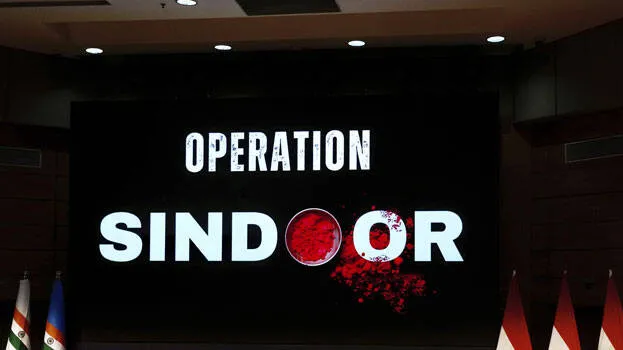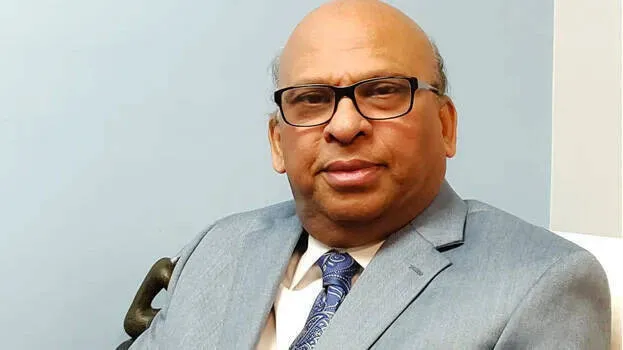

India has delivered a fitting response to the brutal killing of 26 innocent men by Pakistani terrorists in Pahalgam, Jammu & Kashmir, who had mercilessly gunned them down while they were on a family vacation. The horrifying sight of husbands and fathers being shot dead in front of their helpless wives and children is one that will haunt the nation. Bearing the sorrow of the women who suddenly became widows near the border, the country launched a powerful counter-operation across enemy lines, annihilating terrorist bases and eliminating over a hundred militants.
The most chilling detail in the attack was not just the killing—it was the fact that the Pakistani terrorists stripped the victims and verified their religion, only executing them after confirming they were not Muslim. India has now settled the score.
The Indian military's response was aptly named "Operation Sindoor" by the Prime Minister—a symbolic and deliberate title. A retrospective look at the operation reveals that India not only asserted dominance over Pakistan but also gained multiple strategic and diplomatic victories on the international stage.
On May 7.25, India launched powerful missile strikes on nine terrorist hideouts in Pakistan and Pakistan-occupied Kashmir (PoK). These were hideouts used by religious extremists conducting a proxy war against India with support from the Pakistani army and government. India destroyed these strongholds, including killing ten family members of Jaish-e-Mohammed (JeM) founder Masood Azhar. Among the dead was Abdul Azhar Rauf, Masood’s brother and the mastermind behind the unforgettable Kandahar hijacking.
Operation Sindoor was launched exactly 16 days after the Pahalgam attack. Importantly, India targeted only the terrorist camps, avoiding civilian areas and military bases in Pakistan. This restraint was similarly exercised during past responses to the Pulwama and Balakot attacks.
After the reorganization of Jammu & Kashmir in 2019, a gradual return to peace, democratic governance, and economic growth in the region had been observed. It was precisely this return to normalcy that Pakistan’s military-backed terrorists sought to disrupt.
India’s strong and focused counterattacks were a warning. In response, Pakistan claimed these were violations of their sovereignty and retaliated by launching drone and rocket attacks on Indian border villages, killing over 20 civilians. This escalation prompted India to launch a powerful airstrike on Pakistani Air Force bases on the morning of May 10. The missile strikes killed many Pakistani soldiers and damaged military airfields. There were even rumours of damage to Pakistan’s nuclear facilities and potential radioactive leaks.
The May 10 strikes conveyed several truths to Pakistan:
Adding to Pakistan’s woes are numerous internal crises. The Taliban, once nurtured by Pakistan, are now turning against them along the western border. The Balochistan Liberation Army has declared the region as an independent state. Economically, Pakistan is collapsing.
Despite this, Pakistan continues to oppose secular and democratic India in the name of religious extremism. Since its partition from the Indian subcontinent, Pakistan has never truly functioned as a democratic nation. It has remained under the grip of dictatorship, military control, corruption, and internal conflict. Even elected governments are dominated by the military and religious extremist factions. Under the guise of protecting Kashmir and religion, Pakistan’s army and terror networks have been feeding lies to their own people and trying to portray India as the enemy.
India has explained the justification for Operation Sindoor to military attachés from seventy countries. Except for Azerbaijan and Turkey, the global community has largely supported India’s stance—another diplomatic victory.
In his Buddha Purnima address to the nation, Prime Minister Narendra Modi clearly stated that nuclear threats will not deter India’s action against terrorism. India seeks peace, but will use force if necessary. The Pahalgam terror attack has marked a critical turning point in Indian foreign policy. Any future dialogue with Pakistan, India insists, must focus solely on the return of Indian territories currently under Pakistani occupation.
India has warned that Operation Sindoor is not yet over and that the current ceasefire is only temporary.
Significantly, the India-Pakistan conflict has boosted the global market value of Indian-made weapons. While U.S. President Donald Trump claimed that the U.S. played a role in brokering the ceasefire, India has neither confirmed nor discussed this. India has made it clear that there is no room for third-party intervention in the Kashmir issue.
Pakistan's Prime Minister Shehbaz Sharif has expressed willingness to engage in peace talks. However, given the repetitive and hollow nature of such gestures, modern India is unlikely to entertain them.
Finally, as India battles terrorism from across its borders, it must also remain vigilant against those within its own soil who provide covert support to terror. One of the terrorists linked to the Pahalgam attack had studied in Kerala and Bengaluru. Those who aided him are hidden among us—and that is a matter India must treat with utmost seriousness.

(The author is former President of FOKANA and Founder President of NAMAM (USA))